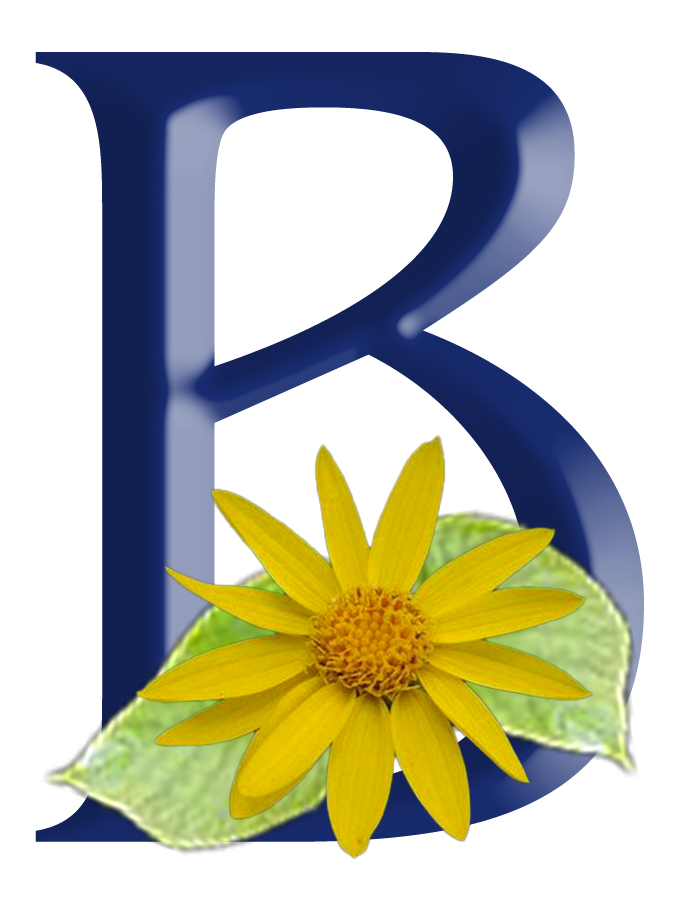
Sunday, June 16th - Half-Day - Afternoon - 1:00 pm - 5:00 pm
Fees, where indicated, include coffee breaks and any necessary supplies
3D Printing for Science: From Design to Optimize
Organized by: Mason McNair
$15.00
Seeing Seeds: An Artistic Investigation
Organized by: Sharon Bladholm
$35.00
Planting Inquiry in Biology Classrooms
Organized by: Muriel Poston
$15.00
_____________________________________________________
Workshop Descriptions
3D Printing for Science: From Design to Optimize
Submitted By: Mason McNair
Abstract
The methods used to collect data vary greatly between different research programs. Standardized equipment rarely accounts for nuances relating to study system or resource limitations, creating a need for inexpensive, custom solutions. Bespoke equipment has historically been limited to well-funded research programs, but advances in 3D printing are making it possible for nearly all labs to design and manufacture their own research tools using the current generation of inexpensive and reliable printers.
The goal of this workshop is to demonstrate the problem-solving potential of open-source hardware and 3D printing for scientists. 3D printing facilitates the adoption of custom equipment that can increase the rate and quality of data collection.
3D printing in most scientific fields is relatively new, but it is rapidly growing. Multiple peer-reviewed articles outlining potential uses of 3D printing in the sciences exist but adoption of this technology has been slow. For example, these are all areas that have successfully demonstrated the potential impact of 3D printing.
Microfluidics (https://doi.org/10.1016/j.addma.2018.10.028)
Microscopy (https://www.preprints.org/manuscript/202105.0352/v1)
Phenomics (https://doi.org/10.34133/2020/8640215)
Education and outreach (https://doi.org/10.1016/j.revpalbo.2023.104860; https://doi.org/10.1016/j.addma.2018.10.028)
To introduce and promote 3D printing in the sciences, this workshop is part of a series of in-person and online workshops that guide researchers through the process of designing custom tools for their research questions, setting up and using 3D printers, and performing maintenance on their machines. While the organizers will not receive any financial benefits from 3D printing companies or suppliers through this workshop, we will be contacting 3D printing companies and suppliers to request discount codes, supplies, and assistance in creating workshop teaching materials to give to participants and offset workshop costs.
3D printing can positively impact scientific research and is worth adopting as part of your research methods. This workshop aims to provide participants with the knowledge needed to successfully incorporate 3D printing into their research.
Planned Speaker
Mason McNair, Clemson University
Seeing Seeds: An Artistic Investigation
Submitted By: Sharon Bladholm
Abstract
In this interactive workshop that merges art and science, we will begin with a short PowerPoint presentation about Seed Rain: Seed Bank, a large ceramic
installation I created and other seed inspired art. Participants will gain inspiration, working from a large collection of actual seeds ceramic seeds, and my enlarged seed sculptures, both from the Midwest and tropical regions. We will then move into a multifaceted afternoon (or day) of art making where we can slow down and appreciate the forms, colors and textures of these small packages that are imbued with so much potential. Power to the plants, Plants power the planet!
Participants will begin drawing with pencil to experientially understand these forms, simple and complex, add color with watercolors. The following investigation involves carving into small clay slabs, using brayer\'s to roll nontoxic ink on them and lastly burnishing rice paper over the slabs, creating a print. There is something exciting and transformative about this process where the unexpected can happen. The clay slabs used for printing are beautiful as well and can be taken home. The final option is to use the self hardening clay to create small seed inspired sculptures, adding color with paint.
Sharon is an artist inspired by the botanical realm in all its aspects, who loves to share her dual enthusiasm for seeds/plants and
art making. She has participated as artist on plant hunting expeditions with the Field Museum, Conservation International, and the Botanical Research Institute of Texas’s, Andes to Amazon Biodiversity Program. She has completed artistic residencies in other remote areas of the Peruvian and Ecuadorian Amazon with Project Amazonas and the Tiputini Biodiversity Station. Her traveling exhibition Soils, Seeds and Sprouts: Tropical and Temperate explores botany and soil microorganisms, using art as a conduit to inform the public on important issues regarding nature, science, conservation, and biodiversity. She often teaches workshops for a diverse audience.
Planned Speaker
Sharon Bladholm
Planting Inquiry in Biology Classrooms
Submitted By: Muriel Poston
Abstract
Science process and critical thinking skills play prominent roles in the revised Advanced Placement (AP) Biology curriculum, Vision and Change (AAAS, 2009, 2012, 2020) for undergraduate biology education, and other undergraduate teaching reform efforts e.g. Gordon Conference in Undergraduate Biology Education. In this interactive workshop, participants will engage in simple, yet effective, methods for instructors to help students develop their scientific literacy and science practice skills ranging from generating questions based on observations of the usual and unusual to exploring alternative explanations. Each person will leave the workshop with tested examples, ideas for using and adapting them in any science classroom, and increased confidence to promote student-centered learning and to introduce inquiry into an existing curriculum. The workshop has several major goals: 1) to demonstrate how to introduce inquiry instruction in a science classroom, to engage workshop participants in inquiry activities, and to work with participants to develop their own inquiry-based lessons; 2) to demonstrate the breadth of botanical examples that can be used to teach major biological concepts while using active learning; 3) to outline the key barriers to equity instruction in a science classroom and help workshop participants create activities that focus on scaffolded skills and concepts based on their own interests; 4) to illustrate the benefits and use of effective formative assessments in a science classroom and how instructors can create their own concept inventory questions; and 5) to identify methods for engaging a diversity of students in the study of science through an exchange of best practices and ideas among the entire workshop group.
Planned Speakers
Gordon Uno, University of Oklahoma
Anna Monfils, Central Michigan University
Muriel Poston, Pitzer College
